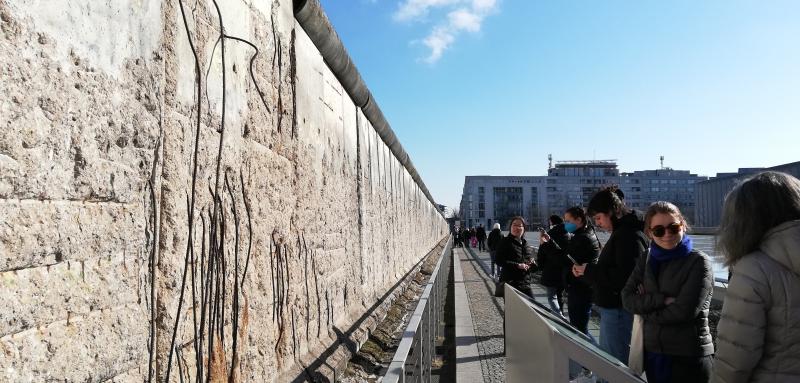
360°: Europe from the Margins
Established narratives of Europe tend to be Western European and focused on high politics. This cluster changes the focus from structures to stories, using an interdisciplinary approach (incorporating political science, history, and German studies) to critically examine Europe’s past and present from the margins. What does Europe look like from the perspectives of those whose voices are usually missing from mainstream narratives – the disempowered, queers, migrant laborers, artists, refugees, and people from Europe’s eastern and southern peripheries? By inserting and foregrounding perspectives of the historically marginalized along with an examination of their theoretical, cultural, and political contributions to European society, this 360 aims to provide critical analytical tools to not only foster greater understanding of the broader context of modern Europe but to rethink what Europe itself is. The field trip to Berlin will provide an opportunity to examine historical legacies as well as current cultural politics and grassroots initiatives of the marginalized.
Europe from the Margins Courses
GERM 217: Representing Diversity in German Cinema
German society has undergone drastic changes as a result of immigration. Traditional notions of Germanness have been and are still being challenged and subverted. This course uses films and visual media to examine the experiences of various minority groups living in Germany. With Qinna Shen, students will learn about the history of immigration of different ethnic groups, including Turkish Germans, Afro-Germans, Asian Germans, Arab Germans, German Jews, and ethnic Germans from Eastern Europe. We will explore discourses on migration, racism, xenophobia, integration, and citizenship. We will seek to understand not only the historical and contemporary contexts for these films but also their relevance for reshaping German society. Students will be introduced to modern German cinema from the silent era to the present. They will acquire terminology and methods for reading films as fictional and aesthetic representations of history and politics, and analyze identity construction in the worlds of the real and the reel.
HIST 238: “From Bordellos to Cybersex” – The History of Sexuality in Modern Europe
This course, taught by Anita Kurimay, is a detailed examination of the changing nature and definition of sexuality in Europe from the late nineteenth century to the present. Throughout the semester we critically examine how understandings of sexuality changed--from how it was discussed and how authorities tried to control it to how the practice of sexuality evolved. Focusing on both discourses and lived experiences, the class will explore sexuality in the context of the following themes; prostitution and sex trafficking, the rise of medicine with a particular attention to sexology, psychiatry and psychoanalysis; the birth of the homo/hetero/bisexual divide; the rise of the "New Woman"; abortion and contraception; the "sexual revolution" of the 60s; pornography and consumerism; LGBTQ activism; concluding with considering sexuality in the age of cyber as well as genetic technology. In examining these issues we will question the role and influence of different political systems and war on sexuality. By paying special attention to the rise of modern nation-states, forces of nationalism, and the impacts of imperialism we will interrogate the nature of regulation and experiences of sexuality in different locations in Europe from the late nineteenth century to the present.
POLS 205: European Politics: Coming Together or Falling Apart?
The European Union is one of the most ambitious experiments in international cooperation ever attempted. Despite the EU's many successes, sources of conflict between and within European countries have persisted. With the recent Greek financial crisis ("Grexit"), the Syrian refugee crisis, Britain's departure ("Brexit"), and the rise of far-right nationalist parties in many member countries, the union is starting to look frayed around the edges. In fact, each move toward European unity has dropped barriers for some while raising them for others. In this course, we will explore European politics from the edges, from the borders separating the included from the excluded. These borders may be geographical, political, socioeconomic, racial/ethnic, or cultural in nature. Our focus will be on political initiatives from the bottom up and the outside in. From this perspective, we will try to make sense of the interactions that produce cross-cutting pressures toward European unification on the one hand and toward dissolution of the European experiment on the other. We will cover issue areas such as migrant labor, housing and urban quality of life, immigration and refugee policy, climate, pandemic response, education and collective memory, defense and security, and information politics. Taught by Carol Hager.
Learn more about this cluster
Students met FDP and SDP Politicians in Berlin
Read more about the field experience from Ellison Warmath, '22.
